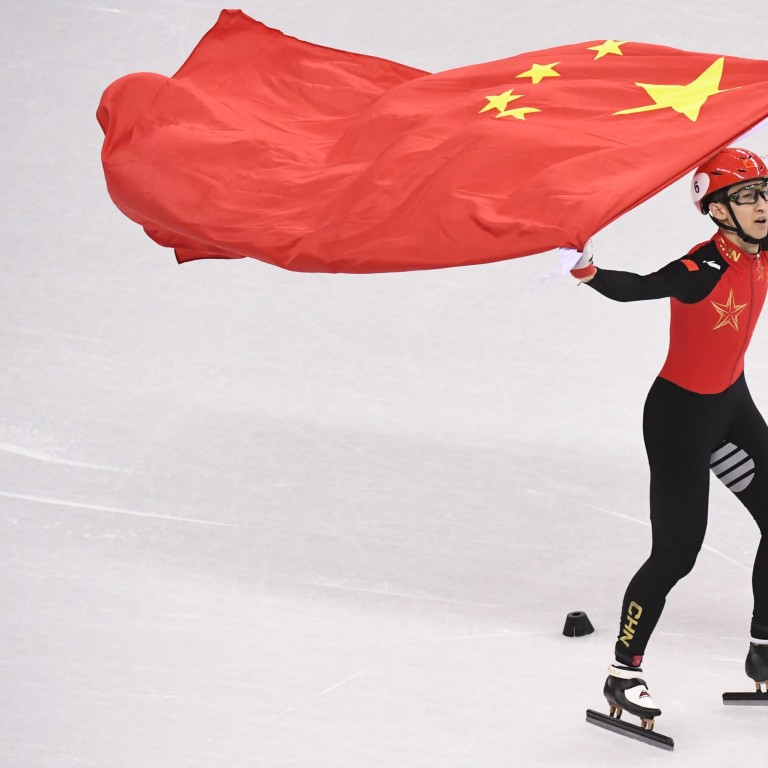
100 days out from the Winter Olympics, what are the big issues facing Beijing 2022?
- Final countdown begins as China gets set to make history with Beijing Games, but there are still plenty of problems to solve
- Whereas Beijing 2008 was ‘One World, One Dream’, China finds itself hosting a second Games in much more uncertain and divided times
Beijing is set to mark an historic achievement in February, when it will become the first city to host both the Summer and Winter Olympics.
However, like almost every other Games before it, a number of headaches will continue to plague organisers right up until the moment the Olympic flame is lit at the opening ceremony.
There is plenty at stake again for China, which will be looking for another soft power win similar to 13 years ago when it welcomed the world with an unforgettable opening ceremony, and a Games to match.
But whereas Beijing 2008 was “One World, One Dream”, China will find itself hosting a Games in much more uncertain and divided times in 2022, with the lack of overseas spectators perhaps symbolic.
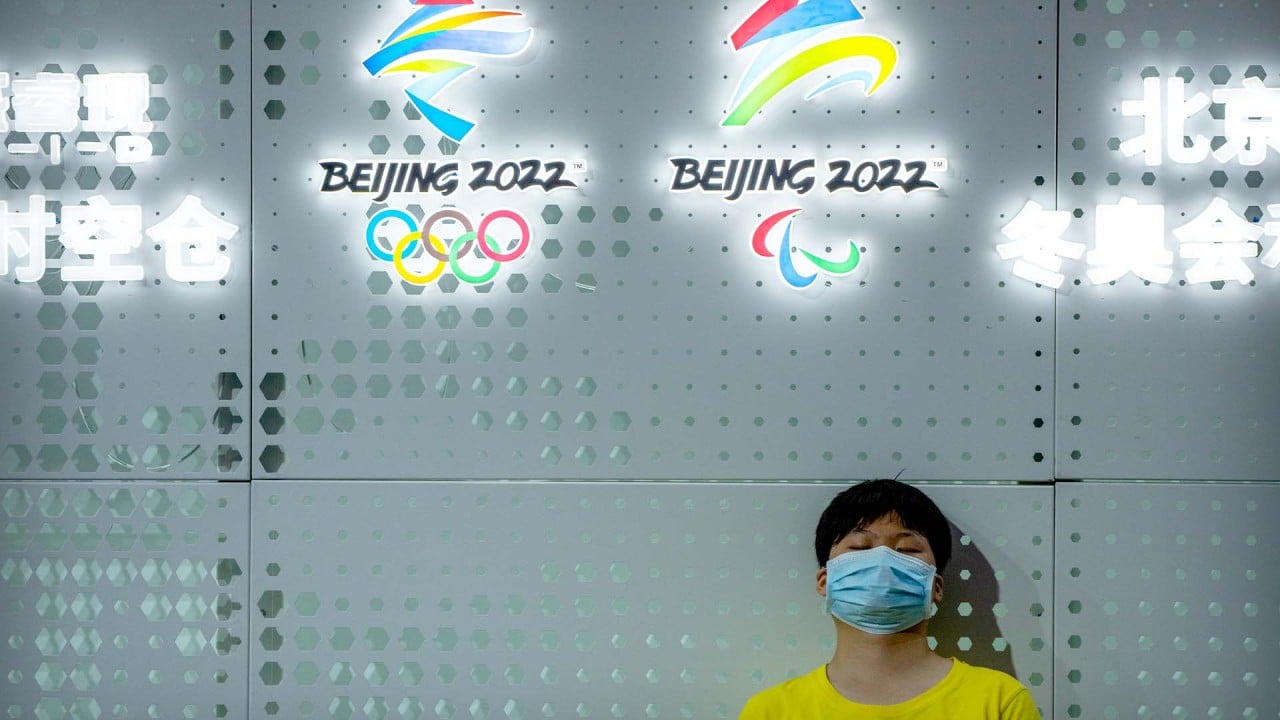
02:14
China, IOC to ban overseas spectators from 2022 Olympic Winter Games
But according to international human rights groups and a United Nations committee, as many as a million Uygur muslims – the region’s largest ethnic group – have been detained in “re-education centres”, and subjected to indoctrination, torture and forced labour.
Talk of a boycott has now expanded into a catch-all for China’s alleged human rights abuses in Tibet, as well as Beijing’s implementation of the National Security Law in Hong Kong following 2019’s anti-government protests.
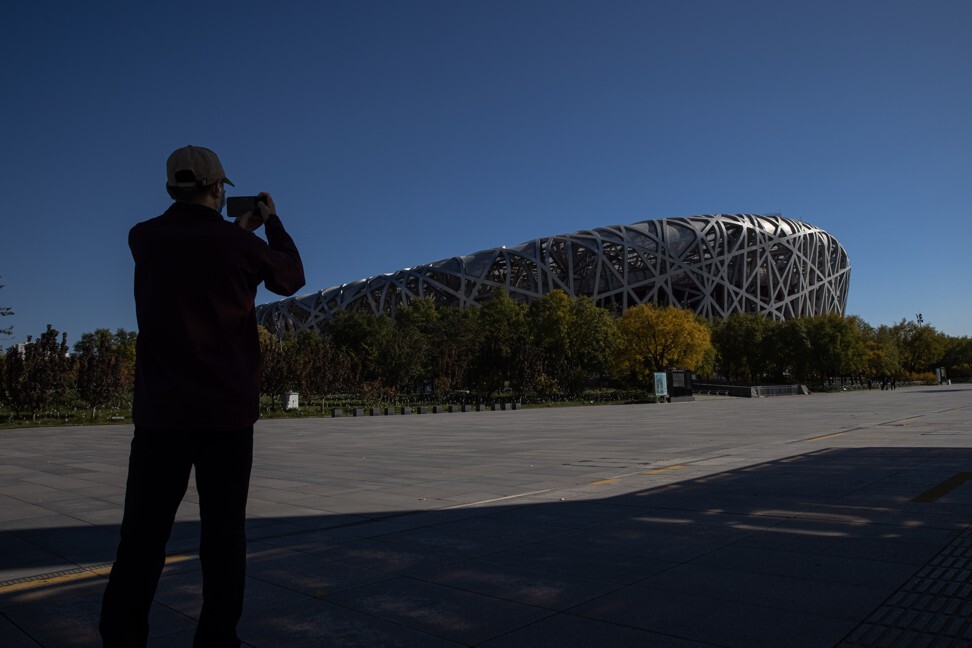
Meanwhile, Beijing Winter Olympics organisers said on Wednesday that protecting the Games from Covid-19 will be their biggest challenge.
At a press conference marking the 100-day countdown to the Games, executive vice-president of the committee Zhang Jiandong said the health of athletes is top priority, with several measures implemented after consultations with experts to reduce Covid-19 risks.
“Covid control is our major challenge for our hosting of the Games. A successful Winter Games must be a Covid-secure one. There’s no doubt about that. That’s why we have to prioritise Covid response,” Zhang told reporters.
Overseas athletes are expected to enter a “close-loop bubble” at the airport if they have been fully vaccinated 14 days before arriving. They will be transported to hotels and venues in designated vehicles but will enjoy a certain degree of freedom of movement within the bubble.

Anyone who attends Beijing 2022 in an official capacity will also have to undergo daily tests for Covid-19.
Zhang admitted there will be restrictions on the athletes’ freedom, but warned all participants to strictly adhere to the rules or they could be punished.
“Breaches of the codes will be subject to some punishments, for instance, a warning or disqualification to take part in the Games,” he said.
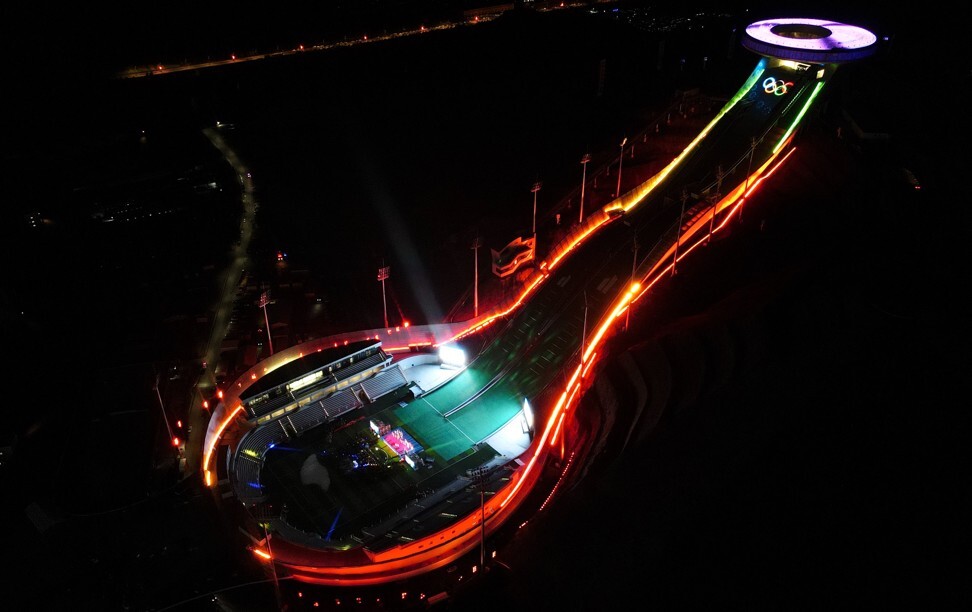
Many Olympics over the decades have faced a race against time to complete the construction of all competition venues – but Beijing is way ahead of schedule on that front.
All of the Beijing 2022 venues – some of them repurposed from the 2008 Summer Games, including the iconic “Bird’s Nest” stadium – are now ready for action, with all of them meeting the relevant requirements, according to Zhang.
There are some eye-catching new venues and facilities too, including the “Ice Ribbon” speed skating oval – the only new venue built on the Beijing 2008 Olympic Green – and the “Snow Dragon”, the longest skiing track in the world at 1,975 metres.
There will be a “closed loop” comprising three clusters of venues – one in Beijing, one in the Yanqing District northwest of the city proper, and one in the city of Zhangjiakou in Hebei province.

Testing and inspections are already under way and going well, according to organisers, with plans to carry out 10 international test competition events – such as the Asian Figure Skating Open, and the Short Track and Speed Skating World Cup – between October and December, in full accordance with Olympic standards.
The athletes’ Olympic village and media centre are still under construction, but nearly ready.
But what will success really look like for Beijing 2022? No doubt, China will judge itself most fiercely on its athletes’ performances.
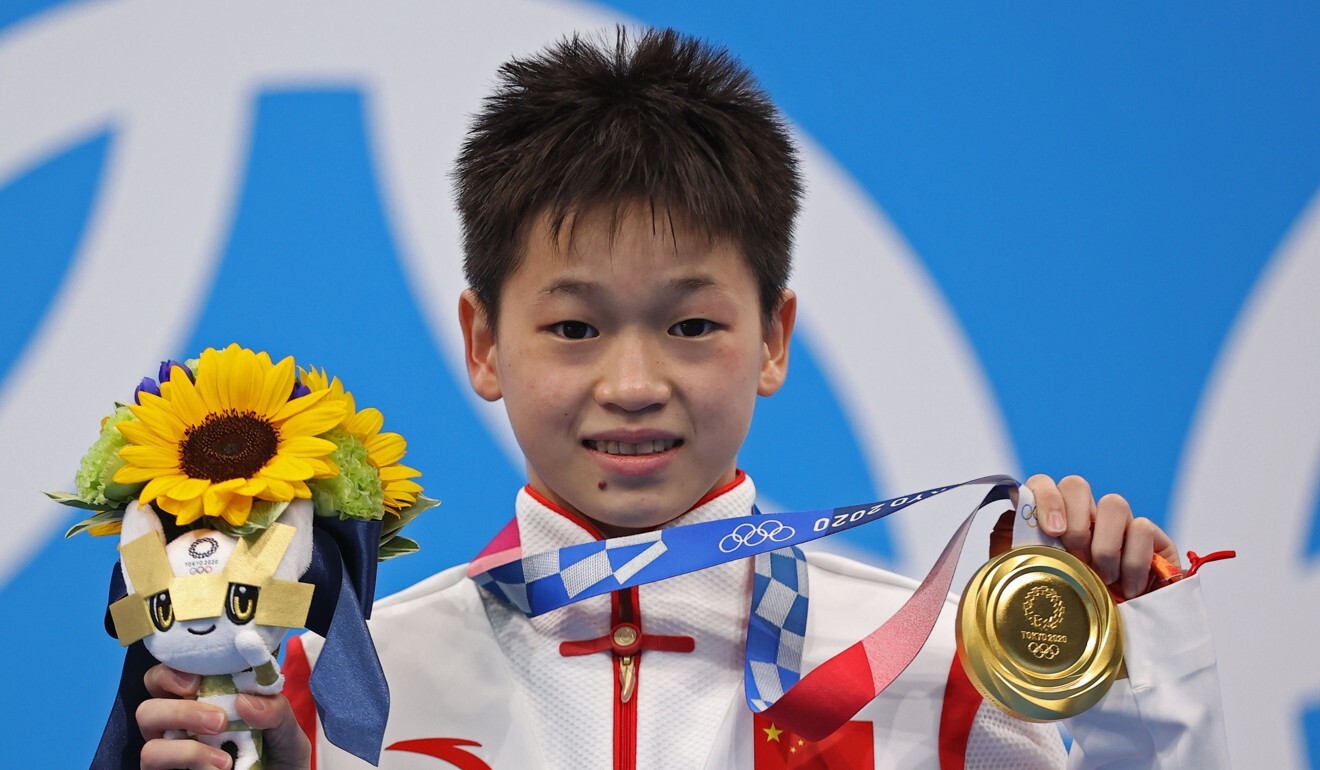
China was pipped to top spot in the medal table by the US on the final day of competition at Tokyo 2020 this summer, though still equalled their London 2012 haul of 38 gold medals, and enjoyed their best overseas Olympics.
Pressure will be high to emulate 2008 though, when China topped the medal table with 48 golds, and achieve a record haul with the home advantage.
China has never won more than 11 medals at a Winter Games, a tally achieved at Turin in 2006, and Vancouver 2010, with five golds in Canada their greatest haul.
They will certainly want a better return than their one gold medal from 81 athletes last time out in South Korea, and have got 480 athletes working hard to compete for results in the 29 Winter Games sports for 2022.
Hong Kong, after their own record haul of six medals at the Tokyo Games, will also look to send a bigger squad to complement their sole representative in Pyeongchang, alpine skier Arabella Ng, with high hopes for male skier Adrian Yung Hau-chuen as well as the city’s short track skating team.
Though, like Tokyo, preparations for Hong Kong and China have been hindered by the pandemic.

Many athletes and teams have not been able to travel overseas for training and competitions, thus losing out on important Olympic ranking points because of a lack of opportunities.
However, they have still been able to train in Beijing and Hebei province using high-level monitoring facilities, which have allowed them to maintain some semblance of form.
Speaking at the press conference, deputy sports minister Li Yingchuan said China had yet to launch training programmes for more than one third of the 109 Olympic events when it secured the rights to stage the 2022 Games in 2015.
At the previous Winter Games in Pyeongchang 2018, China only participated in half of the events. But as hosts of the 2022 Games, China will have to take part in all of the events – barring, perhaps, the ice hockey.
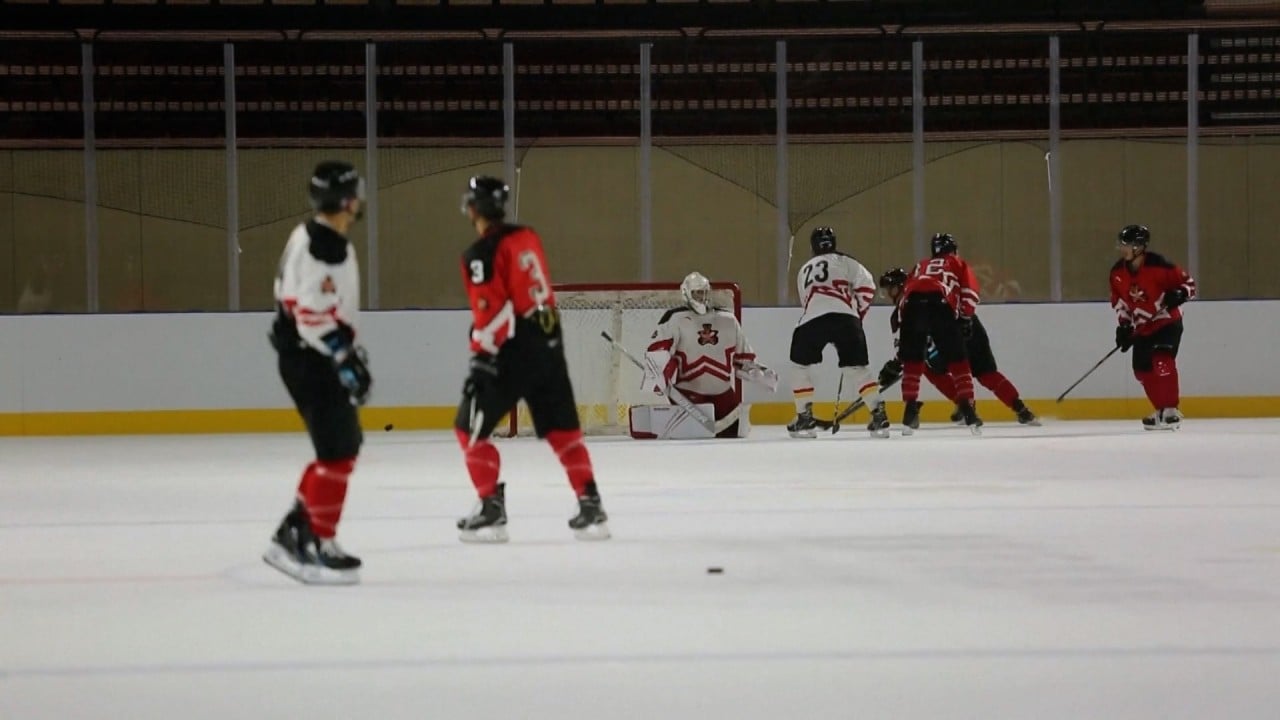
02:20
China’s ice hockey athletes training hard ahead of Beijing 2022 Winter Olympics
Around 150 professional athletes from the National Hockey League – the sixth-biggest sporting league in the world – will be travelling over to Beijing from North America.
This will include superstars like Canadian Sidney Crosby, Russian Alexander Ovechkin and Swede Victor Hedman, who is just coming off back-to-back Stanley Cups with the Tampa Bay Lightning.
However, China’s men’s team (ranked 32nd in the world) are set to get blown out of the water, as they will face gold-medal favourites Canada and the United States in their round-robin games.
The International Ice Hockey Federation’s new president Luc Tardiff said it will make a decision next month as to whether or not it will pull the Chinese men’s team from the competition, and replace them with Norway, to avoid potential embarrassment for all involved.
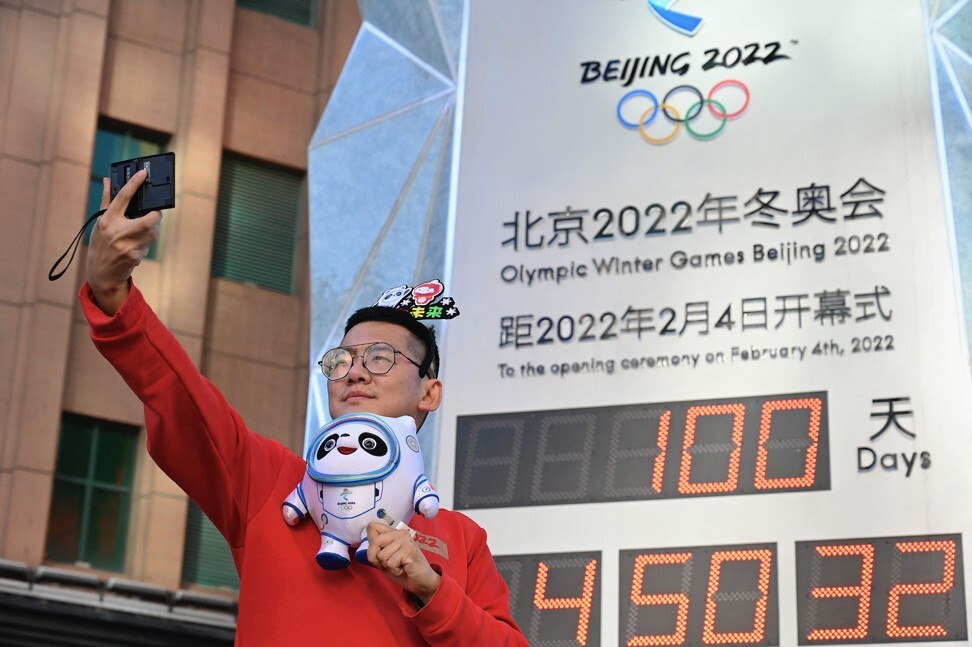
With 100 days to go, the pressure is certainly on not just for the athletes and organisers, but China itself.
“Together for a shared future”, reads the official Beijing 2022 tagline, which was unveiled last month. The Games is certainly a chance for China to show it can lead the way in helping to heal the wounds of the coronavirus pandemic, and to start reuniting the world with some good old-fashioned Olympic spirit.




